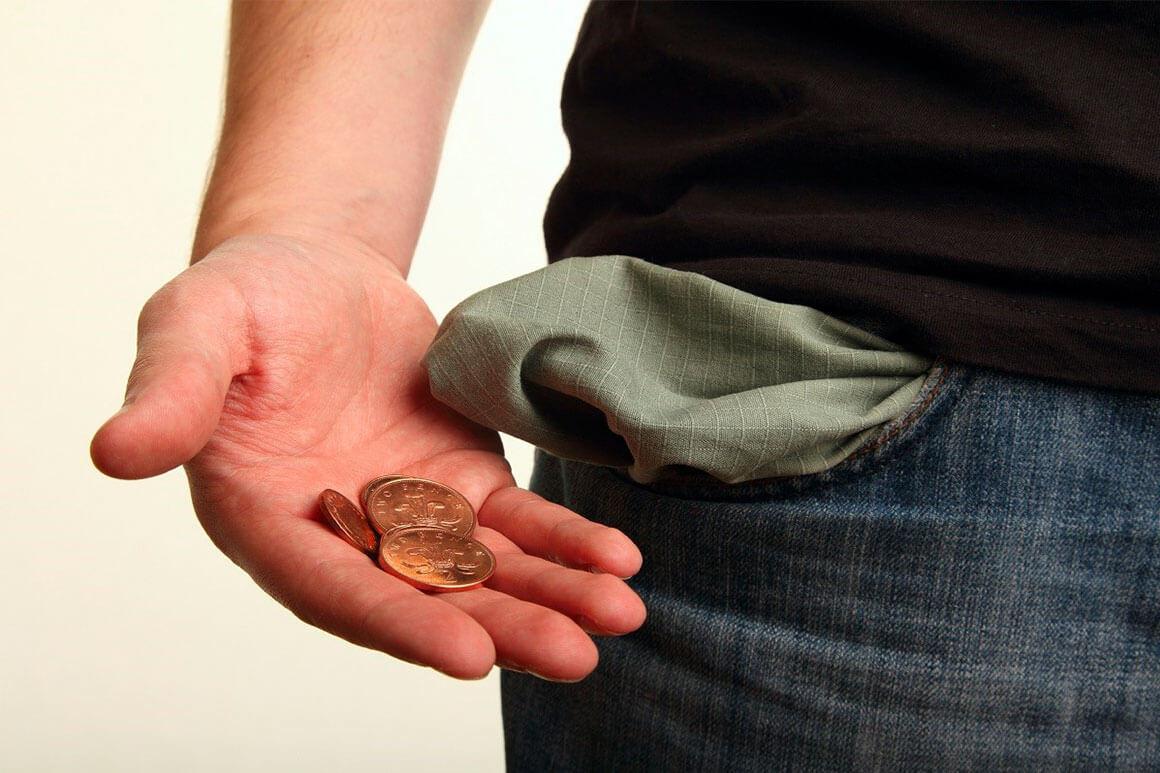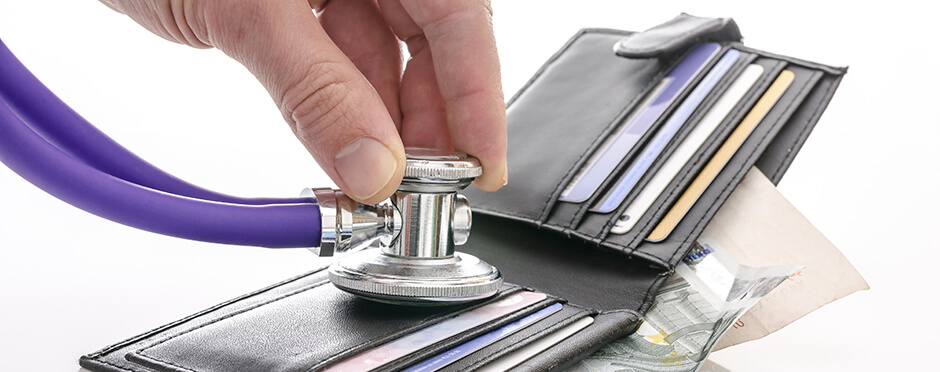
Financial well-being July 26, 2015 By
Many people struggle to get their personal finances in order. Compounding the problem is the sheer number of late-night infomercials featuring financial “gurus” selling gimmicks to get rich quick … “But you must act NOW!”
But what I discovered several years ago is that getting your finances in order is not about getting rich quickly; in fact, it may mean just the opposite. Even graduate school didn’t provide me with a formula to save as useful as the one a customer gave me when she was ready to retire at age 70.
Her formula is simple to understand, but very tough to implement. And while it isn’t anything new, it’s probably something you haven’t tried before. And, it’s definitely not something you’ll find on an infomercial!
Hannah worked hard all her life, but never made a lot money. I think she told me that in more than 40 years of working, she never earned more than $30,000 per year. And, many of those years, she didn’t make anything close to that. For much of her working life, Hannah was a single mother raising her youngest daughter.
When Hannah was looking to retire, she invited me over to her house after church to ask for some advice on whether or not she could afford to retire. She began by telling me her story about the jobs she’d had and the ways she had worked and saved to get through the tough times.
She had a steady job in a factory from the mid-70s to the early 80s, but with the advent of automation, her position was no longer needed and she was laid off. Times were tough and jobs were scarce, so Hannah went looking for anything to bring in money. She cleaned offices. She cleaned houses. She even got a job cleaning rooms at a local motel. Eventually, she found a steady job and held it for nearly 20 years, and that was the job from which she was retiring. At the end of her story, Hannah pulled out her account statements.
She had a balance of over $200,000 in the bank!
“Wow! $200,000 is a lot of money, especially based on what you told me about your work history and about the years when you didn’t have a steady income,” I said. “Did you get a settlement of some kind? Or did you save all this money yourself?”
“I saved it all myself,” Hanna replied. “It wasn’t always easy, and I didn’t always have much to save, but I made myself save something out of every paycheck, every week.”
Hannah told me that when she worked at the motel she would pick aluminum cans out of the trash so she could sell them at the local recycler to supplement her income, which was a necessity. Many of these times, she would only have a few cents left over after paying bills and buying food and gasoline. But, Hannah made those cents matter. She made a habit of making a deposit into her savings account each and every week. Each and every week. Period.
Hannah would deposit a nickel, a dime, or a quarter into her savings account because that was all she had. Yes, you read that correctly; she would go into the bank, fill out a deposit slip, take it to the teller, and deposit a nickel into her account.
Many of us would say depositing a nickel wouldn’t be worth the time, effort, or gasoline, but Hannah would disagree.
I have to admit it’s not the time-money-gas issue that I would have had a problem with. No. My problem would have been much, much worse. I would have been embarrassed to go into a bank with only a coin or two to deposit into my savings account. Simply, my problem was Pride. I would have been too proud to admit that I had nothing to save but a nickel.
But, Hannah knew the importance of discipline and habits. She knew it was more important to reinforce the habit of going to the bank to make a deposit each week—even if that deposit was a nickel, dime, or quarter—than it was to worry about what the bank teller might think of her meager savings.
Hannah admitted she had to dip into that savings from time to time, but she always paid herself back. She effectively made loans to herself and put herself on a strict repayment plan. When she bought a car (with cash), she paid herself back. When she gave each of her grandchildren $2,000 for their high school graduation, she put herself on a repayment plan. When she went on a two-week vacation to Europe and bought souvenirs for all of her kids, grandkids, and kids-in-law, she put herself on a repayment plan. And Hannah made sure she never missed a payment on any of it—all while maintaining her habit of making deposits into her savings account each week.
Now, it doesn’t take a math whiz to figure out that it would take several lifetimes for anyone to save $200,000 by putting $0.05 or even $0.25 into an account each week. Hannah did eventually earn more money, and she increased her savings. However, she will firmly tell you that she increased her savings substantially, and well before, she increased her lifestyle. She never wore the newest styles. She never drove a “cool” vehicle. She has probably never seen the inside of a Starbucks, and would never drink $4 coffee. But now she is retired, living in a paid-for house, driving a paid-for car, spoiling her grandchildren and great grandchildren, and hasn’t had to touch the principal of the $200,000 she has invested. And she STILL deposits money into her savings account each week.
Hannah’s Financial Formula: S > P = $
(If your Savings is greater than your Pride, it will equal a financial return.)
My hope is that this real-life example will inspire you to never feel like what you have to save isn’t “enough” or that it won’t make a difference. Over time, a little adds up to be a lot!




